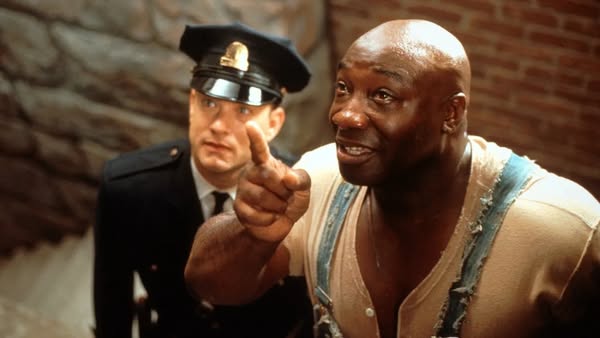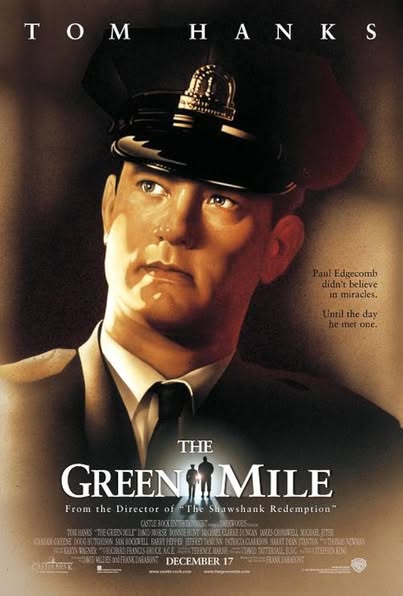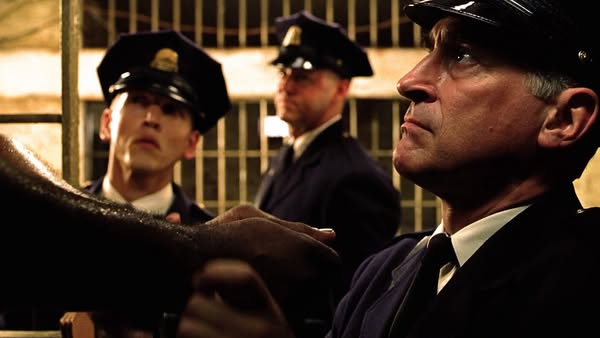The Green Mile (1999)

The Green Mile (1999), directed by Frank Darabont, is a poignant and emotional drama based on Stephen King’s novel of the same name. Set in the 1930s, the film explores themes of compassion, morality, and the complexities of justice through the lens of death row at a Southern prison.
The narrative is framed through the eyes of Paul Edgecomb (played by Tom Hanks), a prison guard overseeing the inmates on the “Green Mile,” the corridor leading to the electric chair. The story unfolds as Paul and his fellow guards encounter John Coffey (Michael Clarke Duncan), a gentle giant convicted of murdering two young girls. Despite his imposing physical presence, Coffey possesses an extraordinary gift: the ability to heal others and absorb their pain.

As Paul interacts with Coffey, he begins to question the validity of the justice system and the nature of true evil. The film skillfully juxtaposes the brutality of capital punishment with the profound humanity displayed by Coffey, who ultimately reveals his innocence and the tragic circumstances surrounding his conviction. This moral dilemma forces the characters—and the audience—to confront difficult questions about guilt, redemption, and the value of life.

Darabont’s direction is masterful, combining powerful performances with a richly atmospheric setting. The cinematography captures the oppressive heat and somber tones of the prison, enhancing the emotional weight of the story. The film’s pacing allows for deep character development, drawing viewers into the lives of the guards and inmates alike.
The performances are outstanding, with Hanks delivering a heartfelt portrayal of Paul, a man grappling with his duties as a guard and his compassion for the condemned. Duncan’s performance as Coffey is particularly memorable, exuding a quiet strength and vulnerability that elicits sympathy from both the characters and the audience. The supporting cast, including David Morse, Bonnie Hunt, and Sam Rockwell, contribute to the film’s emotional depth.

The score, composed by Thomas Newman, complements the film’s tone, weaving a hauntingly beautiful backdrop that enhances the emotional resonance of key scenes.
In conclusion, The Green Mile is a powerful exploration of humanity, justice, and the moral complexities of life and death. Its moving narrative and unforgettable characters make it a standout film that resonates deeply with audiences. Through its blend of drama and fantasy, the film invites viewers to reflect on the nature of compassion and the impact of choices made in the face of adversity, solidifying its place as a modern classic in cinema.











